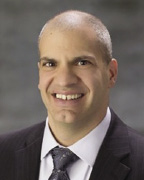"Walking in the clients' shoes" is a phrase that you hear a lot in the consulting world. In order to really walk in a client's shoes, it is important to recognize all facets of a project, especially those that keep the client up at night. Above all, accomplishing that goal is nearly impossible to do without a well-rounded and experienced team.
When team members' backgrounds are complementary, moving a project from conception to design to implementation can be much more efficient. It is important for any firm to hire a skilled and talented workforce - but, more importantly, a team that understands all perspectives of the industry. Consulting firms should not only be well versed on engineering, architecture, or design, but on all aspects of development, such as financing, tenants needs, political environment, and investor returns.
As consultants, we quite often get wrapped up in regulatory or design constraints. We will never get away from those constraints. Skillfully working through construction documents and regulatory requirements is truly the name of the game. However, you can design a shopping center to meet one tenant's criteria and the next week a new tenant is at play bringing an all together different set of requirements and revised set of documents. Or a review board may be against the size of a tenant's sign, putting the viability of the project in jeopardy. This is when understanding a clients' needs and the permitting processes becomes vitally important.
Joe Penney is a prime example of knowing what to expect as well as how to collaborate with a client to make a project successful. Joe recently joined our team at DiPrete Engineering, bringing over 30 years of experience in both engineering and development. Most recently he invested 15 years as the director of development for Ahold USA, parent company of Stop & Shop New England. Prior to that, he served as a principal at Gale Associates, leading the civil, environmental, and transportation groups at the well-known consulting firm located in Boston.
Having literally been in the client's shoes from the developers' side, Joe has a unique perspective on how clients might approach a new project. He appreciates how a firm's constructive relationships with regulatory agencies can help a developer navigate through the approval challenges as quickly and efficiently as possible.
It takes a skilled team of consultants to ensure a smooth permitting process that allows clients to move quickly through the approval phase and into construction. The team must understand its clients' needs - What is needed to meet the pro-forma? Where is the financing coming from? Will the project be sold or will it maintain part of the developer's portfolio? Are there specific tenant requirements?
With years of permitting experience in New England, Joe understands a project from both the tenant and landlord perspective. This expertise can prove to be invaluable, especially to young design staff just beginning their career. When you are in those final stages of getting a permit, negotiating those last few conditions can be the difference of making or breaking a deal. The request to lose parking, reduce the square footage of a sign, shift a building over, or limit hours of operation, can have severe repercussions to the viability of the project and the deals already in place.
If the conditions of approvals make a project unfeasible, the engineering team must work alongside the development team to resolve them. It only takes one condition to cause a problem. For example, if a regulatory agency limits the operating permit for a facility to a 10-year increment and the company's financial pro-forma is based on a 20-year window; developers need a consultant that can help them work through the issue.
Zoning is another issue that needs numerous perspectives in order to arrive at a creative solution. Recently, our firm worked on a residential apartment project where the town wanted less parking. However, the client's lenders would not finance the project if each unit has less than two parking spaces. Though the project made sense from an engineering and planning perspective, it would not have been successful without understanding the client's financial perspective, and working hand in hand with the town to look for something that can work for all parties.
Stepping outside of a firm's comfort zone and learning from professionals in other complementary industries can be very beneficial. A firm's most accomplished employee may not be one with a traditional consulting background. It's important to acknowledge the developmental aspects as well as the public and private sides of a project in order to be successful. By offering various views from the developers, regulators, and designers' perspectives, a well-rounded firm can create a win-win for everyone.
Greg Guglielmo is vice president of DiPrete Engineering, Boston, Mass.
Tags:
Question of the Month: How can having a developer's perspective benefit a consulting firm?
August 27, 2015 - Retail









